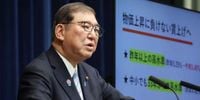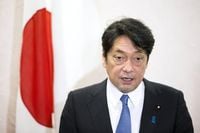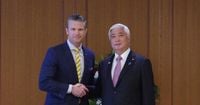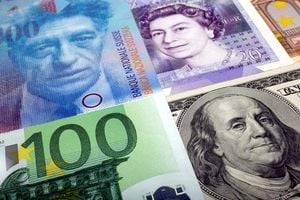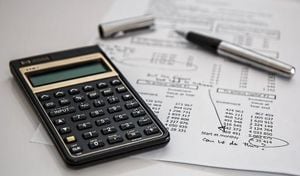Tokyo - In a pressing appeal, Japanese Prime Minister Shigeru Ishiba urged the United States on Tuesday to exclude Japan from impending tariffs on automobiles and other products. With the U.S. administration under President Donald Trump poised to reveal a reciprocal tariff plan on Wednesday, April 2, 2025, and implement a significant 25% levy on foreign-made vehicles the following day, the stakes are high for Japan’s economy.
Ishiba's comments reflect deep concerns within the Japanese government regarding the potential fallout from such tariffs. The proposed measures could severely impact Japan's automotive sector, which is a cornerstone of the national economy. The Prime Minister's call for exemption underscores the urgency of the situation as Japan braces for potential economic turmoil.
Adding to the gravity of the situation, Itsunori Onodera, the policy chief of the ruling Liberal Democratic Party (LDP), expressed his fears during a party workshop on the same day. "I personally feel that this may become a big economic crisis for Japan,” Onodera stated, highlighting the extensive supply chain connected to the automotive industry. He warned that the repercussions of the 25% auto levy would resonate throughout all regions of Japan, emphasizing the interconnected nature of the industry.
As the U.S. prepares to implement these tariffs, the Japanese government is working diligently to negotiate terms that would safeguard its economic interests. Ishiba's remarks signal a critical moment in U.S.-Japan trade relations, with both nations navigating a complex landscape of tariffs and trade agreements.
The automotive sector is particularly vulnerable due to its significant role in Japan's economy. The country is home to major automotive manufacturers, and any increase in tariffs could lead to higher prices for consumers and reduced competitiveness in the global market. The potential economic crisis looms large, with experts warning of job losses and a slowdown in production should the tariffs take effect.
This situation comes at a time when Japan is still recovering from the economic impacts of the COVID-19 pandemic. The government is keenly aware that any additional strain on the economy could hinder recovery efforts and exacerbate existing challenges.
In light of these developments, the Japanese government is expected to intensify its diplomatic efforts to engage with U.S. officials. The aim will be to negotiate a favorable outcome that minimizes the impact of these tariffs on Japan's economy. Ishiba's appeal is part of a broader strategy to maintain strong trade relations with the United States, a crucial partner for Japan.
As the situation unfolds, both nations will be watching closely. The outcome of the U.S. tariff plan could set a precedent for future trade negotiations and impact the global automotive market. Stakeholders in Japan are anxiously awaiting the U.S. administration's decision, which could either alleviate or exacerbate the economic challenges facing the nation.
With the announcement of the tariffs just days away, the pressure is mounting on the Japanese government to take swift action. The stakes are high, and the implications extend beyond just the automotive sector, affecting various industries and the overall economic landscape of Japan.
In conclusion, the unfolding trade tensions between Japan and the United States are a pivotal moment for both nations. As Japan seeks to protect its economic interests, the outcome of the U.S. tariff plan will be closely scrutinized, with potential ramifications that could reshape trade relations for years to come.
